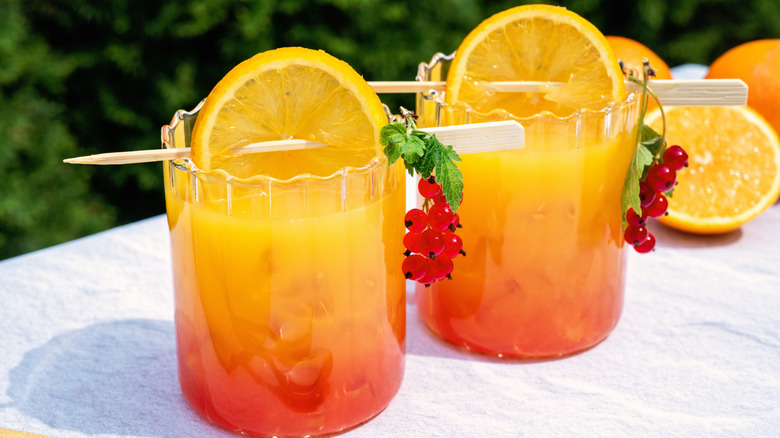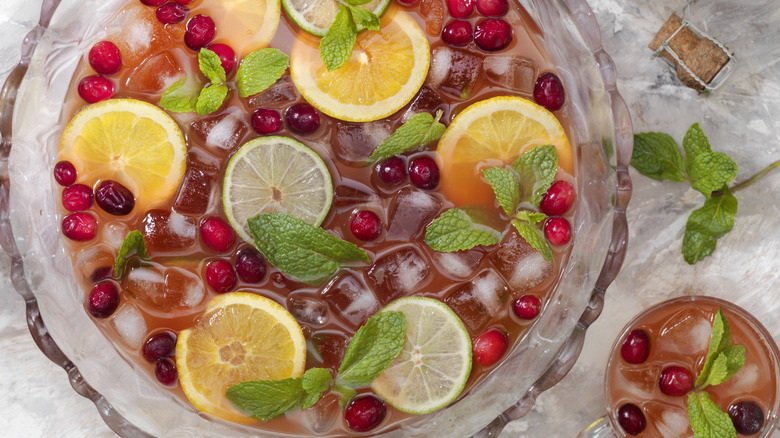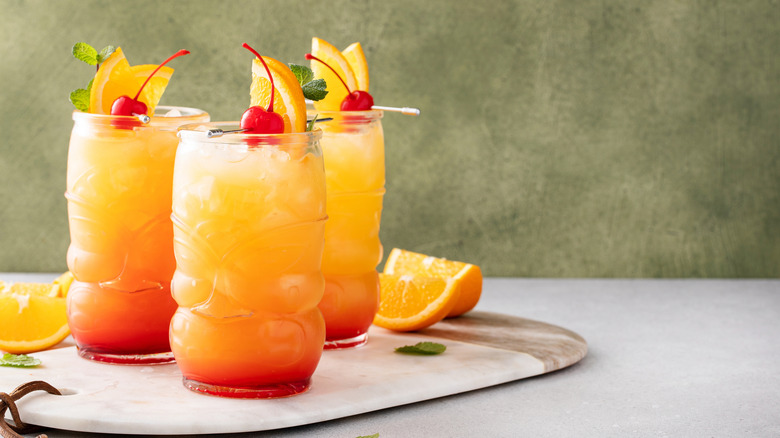The Tumultuous History Behind Caribbean Rum Punches
Caribbean rum punches are as vibrant and layered as the history of the islands they come from, mixing tropical ingredients with a spirit that's been at the heart of the Caribbean for centuries. However, the story of rum punch is far from simple — it's deeply intertwined with the legacies of colonialism, making it one of the more fascinating yet tumultuous chapters in the world of cocktails. Imagine the British Empire's presence in the Caribbean, where settlers and wealthy merchants savored punch (a drink symbolic of coastal gatherings and cross-cultural influence) which would eventually become a celebrated staple across the islands. Yet, rum pinch isn't just a cocktail. It's a testament to the hardships and triumphs of Caribbean history, representing a fusion of flavors and cultures that transcends its colonial origins.
Initially crafted with a five-part recipe — spirit, sugar, water, spice, and citrus— rum punch allowed each island to put its unique stamp on the drink using local ingredients. Rum, whether brought from the Caribbean or made in New England, was enjoyed by people from all walks of life. However, the more affluent members of society often preferred it served as a punch. This popular drink could be found across the British Empire, from the Caribbean to various taverns and in the private homes of the wealthy. Today, each sip of a Caribbean rum punch connects drinkers to centuries of history, offering a taste of the complex, layered story of Caribbean rum varieties.
Colonial influence and the rise of the rum punch
The origins of rum punch trace back to a time when the Caribbean was a focal point of the sugar trade and British colonial rule. As sugar plantations expanded across the islands, enslaved labor fueled an economy centered on sugarcane, which produced molasses, a key ingredient for rum. This labor-intensive industry created the conditions for the rise of rum as a commodity, which was distilled in the Caribbean and exported to North America and Europe. Rum quickly became popular across all classes, from the wealthy to everyday tavern-goers, and punch became a fashionable way to enjoy it. This period saw a rise of communal punch bowls in British society, a tradition that found its way to the Caribbean where locals began mixing rums with tropical fruits and spices.
For the British elite and Caribbean colonists, sharing a bowl of punch was a social ritual, symbolizing camaraderie and hospitality. Behind the scenes of these gatherings, however, was the harsh reality of colonial exploitation, as the rum industry depended on enslaved labor for its success. Today, rum remains central to Caribbean culture, as celebrated dishes like celebratory black cake and holiday drinks like crémas and coquito feature the spirit front and center.
Modern Caribbean rum punches and their cultural significance
Nowadays, Caribbean rum punches reflect the islands' diverse cultures, with each island embracing its own versions. Barbados, often referred to as the birthplace of rum, boasts a punch recipe featuring lime juice, sugar, nutmeg, and Bajan rum — a potent mix that has remained popular for centuries. Jamaica, known for its strong, flavorful rums, takes a different approach, adding pineapple and orange juice for a sweeter, fruitier punch. The Virgin Islands are home to the iconic Painkiller, a rich blend of dark rum, coconut, pineapple, and orange. Each of these variations showcases the unique flavors and traditions of its respective island while staying true to the punch's original five-part formula.
Although rum punch recipes vary widely, the drink's cultural significance remains consistent: It's a symbol of Caribbean identity, creativity, and resilience. Rum punches are more than just a cocktail, they are a representation of the islands' complex history, from the hardships of colonial times to the cultures that define the Caribbean today. It serves as a reminder of how the region took a symbol of colonial power and made it its own, transforming it into a drink that now represents joy, community, and the spirit of the Caribbean. For locals and visitors alike, a glass of rum punch is more than a refreshment — it's a taste of history and a celebration of Caribbean heritage.


